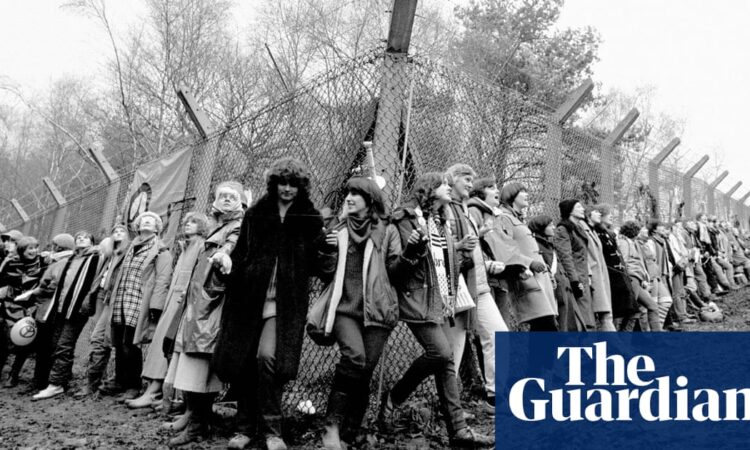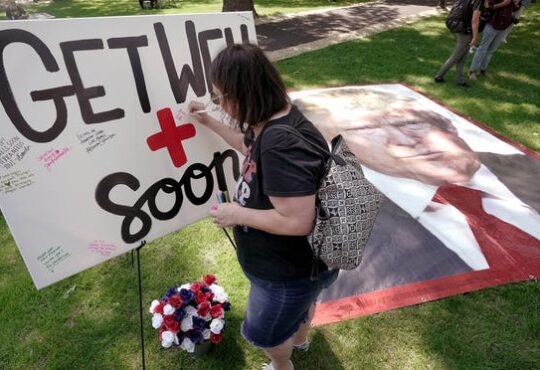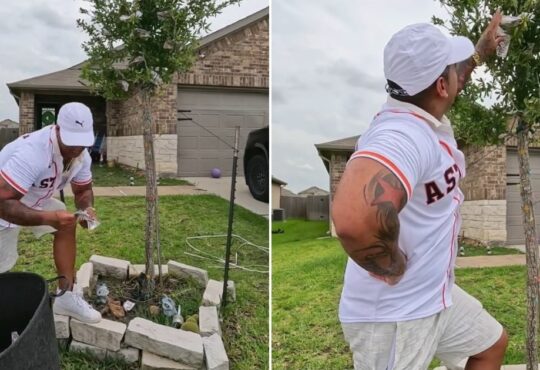Met spying on Greenham Common protest was ‘ridiculous waste of money’, say campaigners | Greenham Common

Campaigners have told a public inquiry the long-running infiltration of the Greenham Common women’s peace campaign by an undercover police unit was a “ridiculous waste of money and an outrageous intrusion”.
An undercover police officer, who used the fake name of Lee Bonser, gathered personal information about campaigners, including details of their jobs, relationships and living arrangements, and reported them to her superiors.
The inquiry has heard that the Metropolitan police sent Bonser to spy on the peace campaigners for three years as Margaret Thatcher, then the prime minister, wanted to know what the “Greenham women were doing”.
In one of the most prominent feminist campaigns in recent history, thousands of women protested and camped outside the Greenham Common military base in Berkshire to oppose plans to site American nuclear weapons there.
The surveillance is being examined as part of the public inquiry which is looking at the activities of more than 130 undercover officers who monitored more than 1,000 political groups since 1968.
On Wednesday the inquiry heard that between 1983 and 1986, Bonser joined a group, Lambeth Women for Peace (LWP), in south London whose membership averaged about a dozen, and regularly compiled secret reports on their activities.
Bonser routinely recorded the protests of the local group, which was one of many in the country supporting the Greenham campaign. This included fundraising events such as a jumble sale and a disco.
Her reports to her superiors contained personal details of the Lambeth Women for Peace campaigners such as their physical appearances, their jobs, a car owned by one of them, the decision of three members to move into a squat and their sexuality.
Bonser also spied on the Greenham camp and became a signatory to its bank account. She was part of a covert Scotland Yard unit, the Special Demonstration Squad, which spent four decades infiltrating mainly leftwing and progressive campaigners. Her reports were routinely passed to MI5.
She has told the inquiry that she was recruited by “a superintendent who indicated that the prime minister wanted to know what the Greenham women were doing”.
Bonser was one of at least five undercover officers who spied on anti-nuclear groups, such as the Campaign for Nuclear Disarmament, in the 1980s. The surveillance took place during a period when anti-nuclear campaigners were mounting widespread non-violent protests against the Thatcher government’s plans to deploy more nuclear weapons. Millions feared an all-out nuclear war with the Soviet Union.
Sir John Mitting, the retired judge leading the inquiry, has said one of the issues to explore is whether the police were justified in using the undercover officers to spy on anti-nuclear campaigners who were using non-violent direct action, such as cutting the fence at the Greenham Common airbase, to further their aims.
Giving evidence, Hilary Moore, a former member of Lambeth Women for Peace, said the activities of Bonser were “an outrageous intrusion, and ridiculous waste of money”.
Jane Hickman, another LWP member, testified that Bonser’s deployment was “entirely unjustified … it was a betrayal that is all the worse because it was completely unnecessary. I also feel deep disappointment at how much public funds were wasted when there were so many more calls on public expenditure.”
Bonser, who said she had “some sympathy” for the Greenham women’s campaign, said the LWP campaigners were “always peaceful, but … they may be disruptive to public order and the members were likely to undertake a ‘sit-in’ or ‘sit-down’ protest which could cause disruption … The only criminality in the group was in their attempts to break into the base at Greenham Common.”





